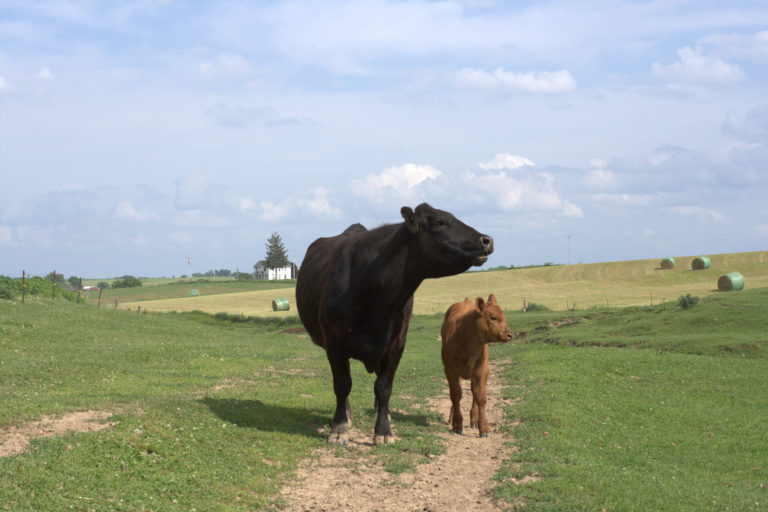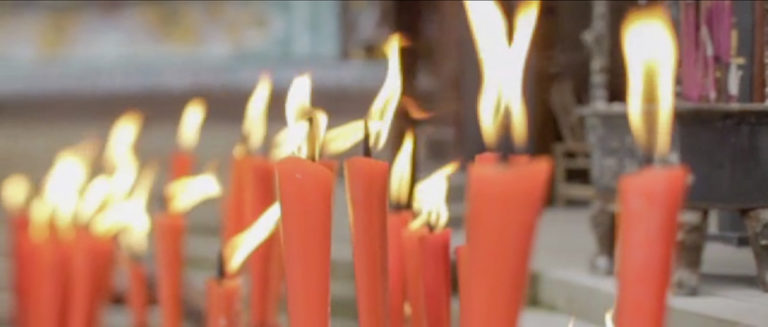What we today call the Chongqing Model and the Guangdong Model are just new names for an ancient struggle. Since the first brick was laid on the Great Wall and the first caravan set out across the desert, this country has been riven by the need to communicate with the outside world and the fear of being overrun. I first came into contact with the modern day version of this ancient struggle when I read the Tiananmen Papers, which detailed the decision-making process that led to the crackdown of 1989.
I read that book back in 2001 and I never forgot the images it conjured up in my mind’s eye: Deng Xiaoping and the Elders straining to understand what was going on around them and debating the best course of action; Zhao Ziyang and Li Peng pleading their cases before the old revolutionaries; hardliners and reformers wrestling for the helm of a nation in the midst of a transitional crisis. In the end the hardliners won out and China stayed the course that Deng had plotted for his country back in the late 1970s.
Earlier this year I finally got around to reading Prisoner of the State, Zhao Ziyang’s biography, based on tapes he recorded during his long house arrest. This book was an attempt by one side of this old feud to bring the struggle to light, to show the world – and hopefully the Chinese-speaking world – that the caricatures of the CCP as a stagnant pool of stodgy hardliners was not only inaccurate, but also detrimental to the overall future of the Party and the country it presides over.
The Silk Road
Today I spent the day at the Jianchuan Museum Cluster and then spoke to Fan Jianchuan himself. His museums cover the Wenchuan Earthquake, the Cultural Revolution, The War Against Japan and the millions of youth who were sent down to the countryside during the 1950s, 60s and 70s. The facts are laid bare for all to see; the irony of heroic revolutionary acts twisted by tragic political machinations is palpable throughout the cluster. Even if most visitors spend half their time taking photos of Sichuan’s strongest pig, many walk away with images of Mao Zedong and Chiang Kai Shek facing the same direction along with a hundred other heroes of the Revolution. Many walk away thinking of the 15 year old Red Guard girls who burned to death out in the Yunnan countryside, far from their Chengdu homes.
Thirty years ago, he said, I would have received a bullet for the work I am doing … But China’s changing …
Everyone I talk to in China is basically optimistic. There might be hardships and frustrations, but give it five years, they say, and Chengdu will be a beautiful city with a great subway system. Give it 10 years and Chengdu will be practically pollution free. Another 20 years and the education system will start churning out the hardest working, most creative, most ambitious and passionate young people you have ever seen.
We will double the foreign population in Chengdu by 2015 and then we’ll be worldly, you’ll see.
We’ll have access to Facebook and Youtube sooner than you think, not that we really need it. It will be symbolic by then …
We’ll travel the world, just like you are, and visas will be a mere formality.
We’ll be rich, loved, peaceful and happy. Hell, we might even nip corruption in the bud …
I can see it. I really can, a Silk Road all over the world bringing spices and goods and people together and I can even see Chang’An and the bazaars …
The Great Wall
But why can’t Ole Grampa Wen? He seemed so worried up there, talking of revolutions and urging the Chinese people to be vigilant and guard against a return to the old ways. Today some girls I spoke to screwed their faces up in ridicule when I mentioned the Red Era. Never happen, they said. Impossible.
Reminds me of a conversation I had with a Persian kid who was just off the plane from Tehran, sitting in the Bookworm looking harried and tired. Like a rebel who escaped. He told me that the streets are full of whispers and no one is willing to trust anyone. Everyone sticks to themselves in Tehran and the blanket of fear is not just suffocating, but terrifyingly familiar. And for some, comforting.
“We are fighting for everything now,” he said. “back in 2008, it seemed like we had it all. Now we don’t wish for the days before the Revolution, we wish for 2008. Chinese don’t have that same urgency, because they have never had that freedom before, so in fact they are only gaining, never losing.”
Could it happen again? A hardline backlash that shuts down the web for good, tosses AWW into a pit and never lets him out, crushes Wukang like a plum and makes life really tough for foreigners? It’s hard to see, isn’t it? Consider that any Chinese with the cash is buying property abroad, buying foreign passports, getting their kids out. Sounds like an exit strategy to me. History, especially in China, is a massive wheel of stone that so far has turned for millennia. Every time the caravans leave for new lands, someone decides to shore up the wall.
I can see the beginnings of a new history in the world youth culture that unites Beijingers with Cairenes with Berliners with New Yorkers, but it’s so fragile, so new, so delicate. We need time to figure it out. Figure out what it is exactly we are dreaming of. Reminds me of another conversation I had recently that dealt with the chances of the US to pull out of the doldrums and put an end to this nasty partisan fighting.
“Give it time,” my friend said. “The conservatives are dying off and their children are much more liberal. How many kids were in your Young Republicans club when you were in college? How many in the Young Democrats? See? Just a matter of time … America’s changing.”
Fan Jianchuan told me tonight that he wants to let history tell the story for him, that he wants his artifacts to live on as China’s diary. History doesn’t lie, it seems he was trying to say, only people do. I agree. So when I look back in time, I see the death of the old imperial society in the fires of WWI and WWII; I see the Iron Hats deposing reformist officials during the late Qing dynasty and eunuchs burning ships and demolishing ports during the Ming. I see Tea Parties and guillotines and firing squads and lines of silent Indians enduring the batons of the British.
I see Silk Roads running into Great Walls.







6 thoughts on “Silk Roads and Great Walls”
Hi Sascha,
this article is a great pictures of the “Chinese” way of thinking about progress .
As foreigners coming from the “first world” we often focus on the negative side (pollution, corruption and so on). I’m not saying it’s good or bad, it’s just the way we are.
However, I find a pattern common to China, Brazil, Thailand, Colombia and so on… They always tend to smile and be optimistic, no matter what’s going on.
I guess this is the main reason I moved from France – nice welfare but (almost) no smiles – to China, where I feel… alive.
Then we will see… as you wrote “History doesn’t lie, only people do”
In some senses Sascha, it really doesn’t matter what we see today, as Furio alludes to, whatever silk road comes up against whatever great wall, we have to go again, we have to keep searching for that light, just as Fan Jianchuan is doing now. When I see heaps of soulless, dirty, damp and crumbling tower blocks built upon once tropical hill after another in down town Chongqing I smile, because there’s nothing else to do. Unless we just want to look desperately miserable – like Furio’s French – and feel sorry for ourselves, and feel sorry for the shocking state of our planet.
We have to take a breath, however much we have to strain to take it, and go again. The silk road runs into a great wall, and so comes the next silk road. We don’t give up, we don’t get depressed, we go again and again. And one day, may be one day, we humans may actually see the light and stop building those fu-king walls. Ignorant bliss, light in the dark, deluded optimism, tragicomedy, blinkered historical awareness, whatever it is we need a bit of it, to go again. I, like you, see the high likelihood of some pretty dark times ahead, and not just here in China, let’s hope we are seeing things wrong, or at least let’s hope some of us are left to have another go.
Yeah I find myself in a pretty circular mode of thinking. Unable to really distinguish a damn thing and bouncing between two or more visions of what’s really going on. Reminds of math in a way, I could have just as easily published a blank page 😉
I feel you on that one. 8)
In China, choosing between silk road or great wall is to decide which is more important: the country or the party. culture, justice, art, history, education, economy, foreign exchange, media, internet, pollution control, land reform, railroad, manufacturing, mining, shops, traffic control must serve the party and revolution, with a the purpose to keep the party’s overall dominance in the party’s overall dominance in the country.
When the county official asked the reporter “are you serving the people or the government? “, he asked “silk road or great wall?”